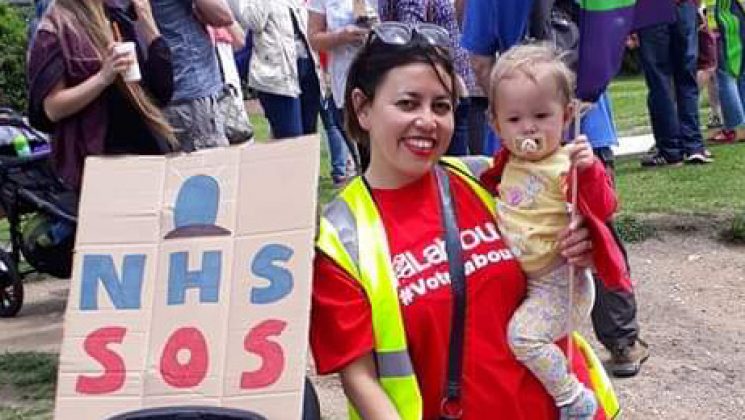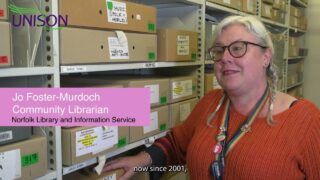The wheels of justice are still turning throughout the coronavirus pandemic – and they’re turning faster than ever in the probation service.
Elisa Vasquez-Walters was one of the many UNISON probation workers putting the pedal to the metal to make the government’s early release scheme — aimed at stopping prisons becoming Covid-19 hotspots — a success.
“This was a significant piece of work under very tight timescales,” she tells UNISON Eastern. “It was quite stressful as of course the other work doesn’t stop.”
That other work is in the resettlement team for the Essex Community Rehabilitation Company, dealing with low and medium-risk offenders as they return to the community.
It’s a busy job at the best of times, preparing people for release, overseeing sentence plans and risk assessing cases that have been recalled to custody.
Other UNISON members in the company run the Unpaid Work programme (community service) as well as a host of other accredited offending behaviour programmes, while in her role as Eastern probation branch secretary, Elisa supports workers in the National Probation Service, dealing with high-risk offenders.

Despite the difficulties, Elisa believes the probation service has coped well with the pandemic.
“We are all able to transition to working from home fairly easily in terms of IT and our colleagues working in courts have been taking part in virtual hearings.
“Some members have of course continued to provide a face-to-face service and this has undoubtedly been challenging.”
That face-to-face work has created “huge concerns” for many probation staff.
“Our face-to-face work should in theory be manageable with social distancing guidelines, however our workplaces and indeed the behaviour of some our client group doesn’t always allow for this,” she says.
“Eliminating danger, particularly when there are still so many scientifically and medically unanswered questions around the situation, is really difficult.
“The situation has also in my view been made significantly harder by the mixed messages, for instance around the use of masks, from the government.”
The union has managed to solve many problems by working with the employers but staff are still struggling.
“I’m not sure that anyone in the probation service feels totally safe right now: how can they? This is the greatest challenge of being a key worker.”
Naturally these concerns differ greatly among the different job roles.
“Our unpaid work supervisors have historically taken service-users out to work sites in vans and worked with groups of people in various settings – how will this work in the future?
“Programme facilitators have delivered programmes in groups of around 12 – how will this look in the future?
“Our approved premises staff are basically in a residential setting with high risk service users, how do we now take account of these additional health and safety concerns?”
One thing that is sure is that Elisa and the rest of UNISON will be doing everything possible to ensure probation staff are safe at work.
“We all have to work hard to make sure that the health and safety is message is as clear as a bell because there is no obvious end to this situation.”




